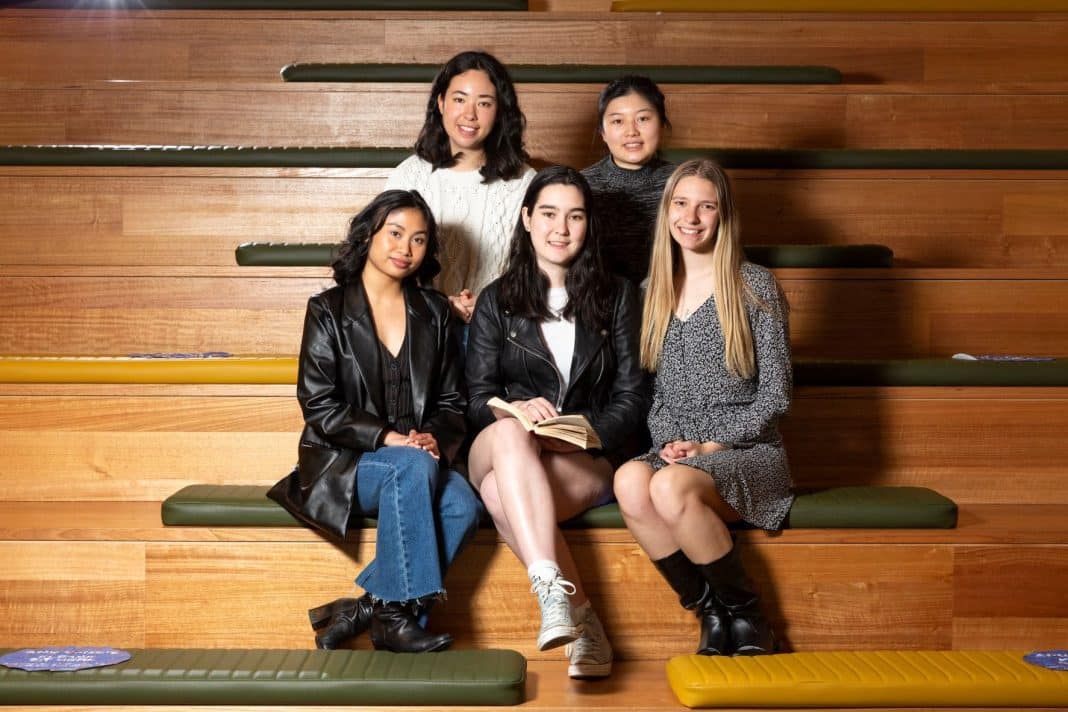The ANU Musical Theatre Collective (MTC) is creating an inclusive and welcoming environment for students to experiment with musical theatre on campus. The collective performs their second production, Little Women, at Kambri Drama Centre on 19-22 October.
Formed late last year, the collective has taken over the role as the university’s only musical theatre club following the Musical Theatre Company de-affiliating a few years ago. Organisers say the name change was to differentiate themselves and place a stronger emphasis on community inclusivity.
“When we affiliated as a new club, we had to settle up the debts of the previous club and that’s another reason we changed our names as well. We really wanted to be a new club with our own values and constitution and our own focuses,” says Caitlyn Cutler, treasurer of MTC and assistant director of Little Women.
Inclusivity is top of the agenda for the club, anyone is welcome, and no experience is needed. The only requirement is that members are or have once been a student at ANU. Cutler, who is in the second year of an Arts and Science degree, jumped at the chance to be involved. She says the MTC adds the emphasis on creating a safe space and want people to know it is okay to make mistakes.
“I think theatre is such a vulnerable thing to do; acting itself but also singing as well is so vulnerable. It’s a musical instrument but it is your own body.”
The other focus for the group is upskilling. They want to avoid the cliché of having the same people working on and behind stage, as it leaves the group unskilled when core members move on. It also means people are less likely to audition.
“Musical theatre is already a very niche passion; I think when you have the same people doing the same thing all the time it does create that exclusive club. It stops people who are interested in musical theatre from having those opportunities to expand and to learn and explore,” says Chloe Tuazon, director of Little Women.
“It also means when those students graduate, you’ve got nobody to come through,” Cutler adds.
Both Tuazon and Cutler have been involved in performing arts since they made their debut performances at around 10 years of age. The experience of auditioning, successfully getting roles, and being rejected meant they knew what they wanted to achieve with their production.
They wanted to ensure opportunities for cast members of all levels of experience, so, in their upcoming production, core roles have been double cast. For three performances, the primary cast will play lead roles, then for the remaining two, they will step back into ensemble roles and allow the secondary cast to take the spotlight.
“For people who have never been involved in musical theatre before to be able to do so in a larger role, without the pressure of the cast relying on that one person, it’s like a mentor-mentee kind of role,” Cutler says.
When casting the roles, the collective focused on talent, potential talent, and chemistry between the actors when on stage. The looks or backgrounds of the cast weren’t considered, meaning the sisters won’t resemble a traditional family unit; however, they don’t believe that’s important.
“You don’t notice when you are watching them act, they all trust each other so much you feel the sister bonds on stage,” Cutler says.
“I compare it to Hamilton, the three Schuyler sisters. They don’t look anything alike, but no one really looks at that and goes ‘oh, that’s an issue,” Tuazon adds.
Tuazon, who is in her third year of a Law and PPE (Politics, Philosophy and Economics) degree, joined the MTC for this production. She has first-hand experience with having been typecast or overlooked for a role based on looks – though not always in a negative way. However, she finds it’s dumbfounding and something she wants to erase in the industry.
“I definitely have experienced times where I would be shoved into specific roles because I am a woman of colour; it wouldn’t be based on talent or experience,” Tuazon says.
Even though MTC is relying on funding through the ANU’s club council, the collective hopes to be able to fund their own shows in the future. The organisers say they require more funding than other theatre groups on campus as their licences are more expensive and require more technology-based setups like microphones for the whole cast. They are looking for a larger theatre space to allow for more ticket sales.
“The Kambri drama theatre is very small and doesn’t allow for many seats, especially when you have to try and fit an orchestra in there as well. The most we can normally squeeze in is 90 or 100 which sounds like a lot but really isn’t for a theatre, especially when we want to be self-supporting,” Cutler says.
The ANU Musical Theatre Collective performs Little Women at Kambri Theatre, 19-22 October; musicaltheatreco.anu.edu.au
Canberra Daily is keen to hear from you about a story idea in the Canberra and surrounding region. Click here to submit a news tip.



